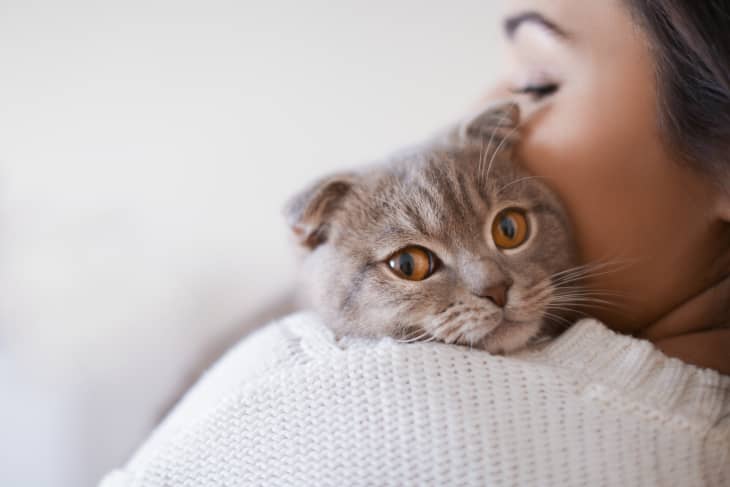You’re Not Imagining Things, Your Cat Actually Is More Like You Than You Know

Have you ever looked at your cat and wished you could live their life? They get to spend every day lounging around. If they get up to move, it is usually from the comfort of your bed to spread out on the couch. Their food bowl is always mysteriously refilled without them having to lift a paw. They get treats whenever they want. The spoiled house cat honestly has the perfect life. Which means you might just have the perfect life too.
According to a recent study published in PLOS ONE, it was revealed that cats actually mimic their owners’ personalities. Cats apparently replicate traits like extroversion, openness, and neuroticism or emotional stability. Which just makes us stop and wonder, are our cats aloof because we’re aloof? And do we really sleep as much as our cats do?
The study was conducted and published by Lauren R. Finka, Joanna Ward, Mark J. Farnworth, and Daniel S. Mills on February 5, 2019. The study was done to correlate the direct impact that personality might have on the nature of the care provided. This has been well researched in the relationships between parents and children. But it has not often been looked into when it comes to a human’s relationship with their pets. For this specific study, they chose to look at the influence a human’s personality has on their cat.
The study surveyed 3,331 pet owners, 92% of whom were female. 25.9% of respondents were between 25 and 35 in age, while another 25.9% fell into the 35 to 44 age range. 82% of cats were non-pedigree breeds, like domestic long hair, medium hair, and short hair. For the study, they look at five personality traits that humans and cats have, to determine the correlation between the two. They looked at Agreeableness, Conscientiousness, Extroversion, Openness, and Neuroticism.
Co-author of the study and animal welfare researcher Lauren Finka told The Telegraph:
“Many owners consider their pets as a family member, forming close social bonds with them. It’s therefore very possible that pets could be affected by the way we interact with and manage them, and that both these factors are in turn influenced by our personality differences.”
In the study, it was linked that owners with higher neuroticism also were associated with an increased likelihood of non-pedigree cat ownership, rather than owning pedigree cat breeds. There were positive findings as well, for example, higher owner extroversion was associated with an increased likelihood that the cat would be provided access to the outdoors, while high owner agreeableness was associated with a higher level of owner-reported satisfaction with their cat. High owner agreeableness also had a greater likelihood of owners reporting that their cats were at a healthy and normal weight. As far as high owner conscientiousness goes, the survey suggested the cat would display less anxious, fearful, and aggressive behaviors. This led researchers to believe that the personality of the human owner had an impact on their cat.